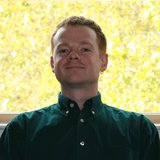Ketamine for treatment-resistant depression - an fMRI and EEG study
About the study
Ketamine, a commonly used anaesthetic, has been found to have rapid-acting antidepressant effects in some people with treatment-resistant depression.
Using brain imaging techniques, we will observe the effects of ketamine treatment on brain activity patterns and how this relates to any changes in the symptoms of treatment-resistant depression in major depressive disorder or bipolar disorder. This will help us gain a better understanding of the mechanisms behind ketamine's potential antidepressant effects.
What will it involve?
Participation involves 11 visits to the Centre for Neuroimaging Sciences, King’s College London at Denmark Hill, spread over the course of 2-3 months.
- Visit 1: A screening visit to assess if you are suitable for the study including a comprehensive mental and physical health exam with a study doctor.
- Visits 2, 6 & 10: 3 x study days where you will have an MRI scan and an EEG scan to assess brain function and activity as well as completing tasks and questionnaires assessing your memory, concentration, and mood.
- Visits 3-5 and 7-9: 6 x infusion days where you will receive 3 x intravenous infusions of active placebo and 3 x intravenous infusions of ketamine with a study day in between. The order that the 2 sets of infusions are given is randomly assigned to you.
- Visit 11: A follow up visit with some short questionnaires and health checks.
This study is no longer accepting applications
Similar studies you may be eligible for...
-
Bipolar
The CRiB2 Study
Conducted by: King's College London
-
Depression
CARE Study - Researching attribution in depression
Conducted by: Royal Holloway University
-
Depression, General mental health
Depression diagnosis in Black Christians
Conducted by: University of Surrey
